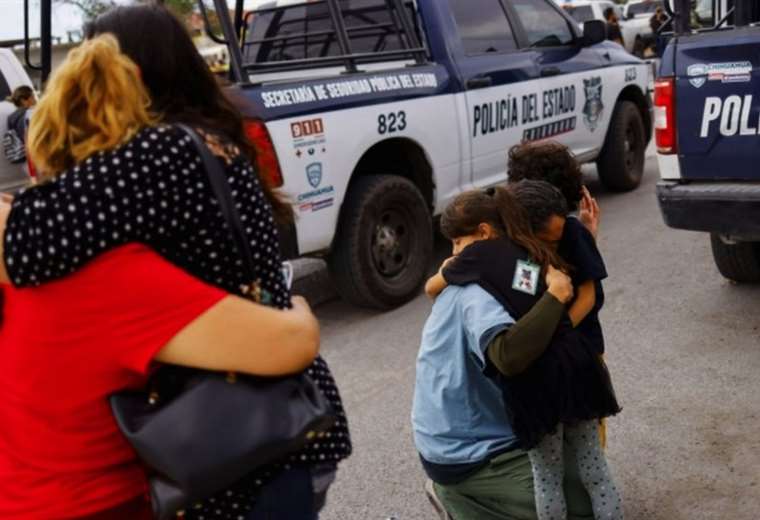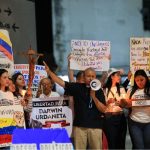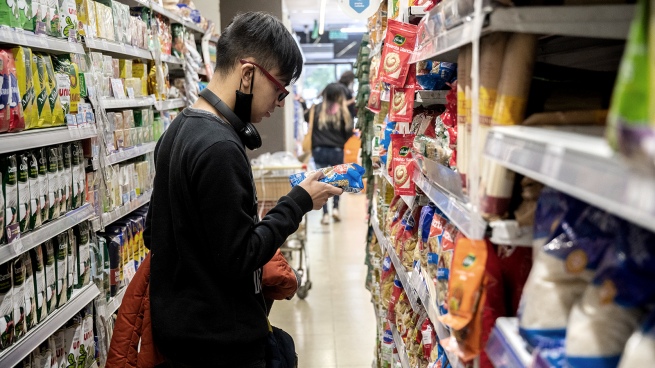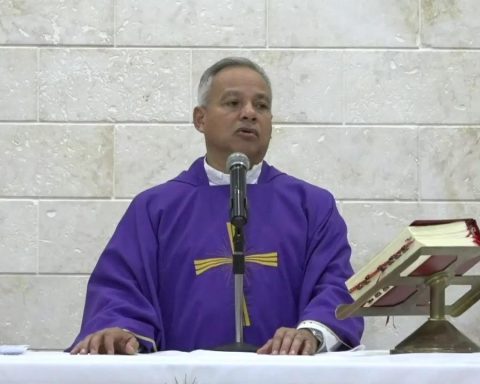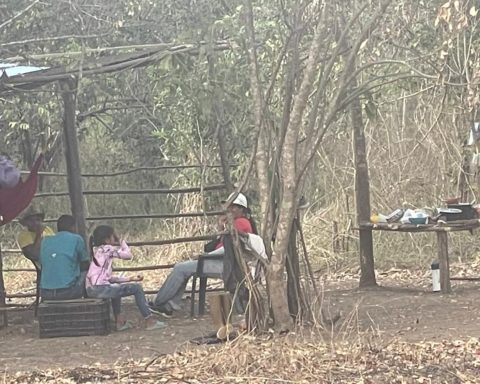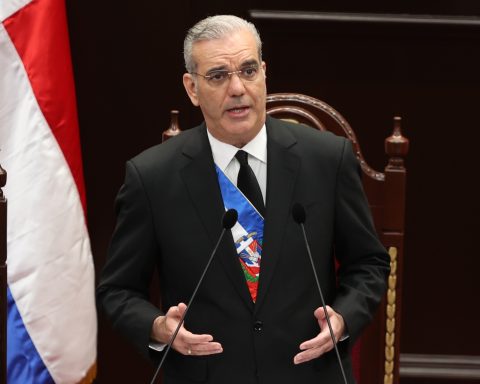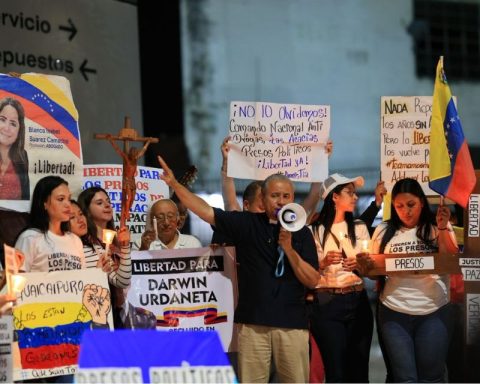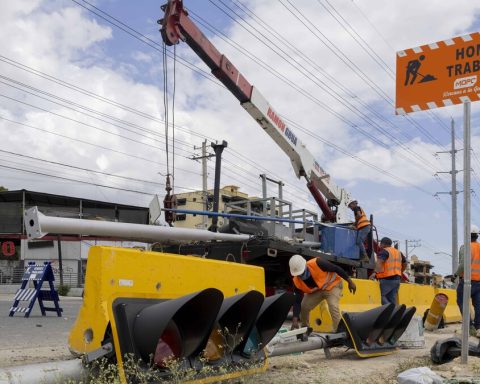August 18, 2022, 4:00 PM
August 18, 2022, 4:00 PM
Indiscriminate murders of citizens, burning of vehicles and businesses with customers inside, roadblocks…
During several days last week, Mexico was shocked to witness the uncontrollable chaos caused by organized crime in different states of the country.
It first happened in Jalisco and Guanajuato, apparently as a reaction to the authorities’ attempt to capture a leader of the Jalisco New Generation Cartel. Later in several cities in Baja California, such as the border Tijuana.
And in between, crime was rampant in Ciudad Juarezafter a prison battle between rival local groups that later spread to the city and ended with a balance of 11 dead in which hea that the civilian population was the main target of this massacre. The Mexican government deployed the army to restore security.
Given the great impact generated in the country, the president Andrés Manuel López Obrador accused opponents and the media this week of using what happened to generate uncertainty and destabilization among citizens, and assured that with no less than 196 murders from Friday to Sunday throughout the country, the past “was about weekends, Incredible as it may seem, with fewer homicides”.
In fact, this type of violent acts in which organized crime shows its power openly by taking control of entire cities is not new in Mexico.
What is increasingly worrying is that, far from focusing solely on clashes between rival groups or with the authorities, the civilian population is increasingly vulnerable by remaining practically hostage at the center of these disputes and being a direct target of appalling and indiscriminate violence.
Civilians as targets of drug traffickers
“(It is) something that had not been presented and hopefully it will not be repeated, because the innocent civilian population was attacked, as a kind of retaliation. It was not just the confrontation between two groups,” López Obrador said a few days ago to highlight what unprecedented situation.
However, this was not the first indiscriminate attack against innocent citizens in Mexico. Not the bloodiest either.
In 2008, eight people died after the detonation of two grenades in the center of Morelia during the celebration of Independence Day. Last year, organized crime murdered 14 civilians in cold blood in Reynosa, also on the northern border.
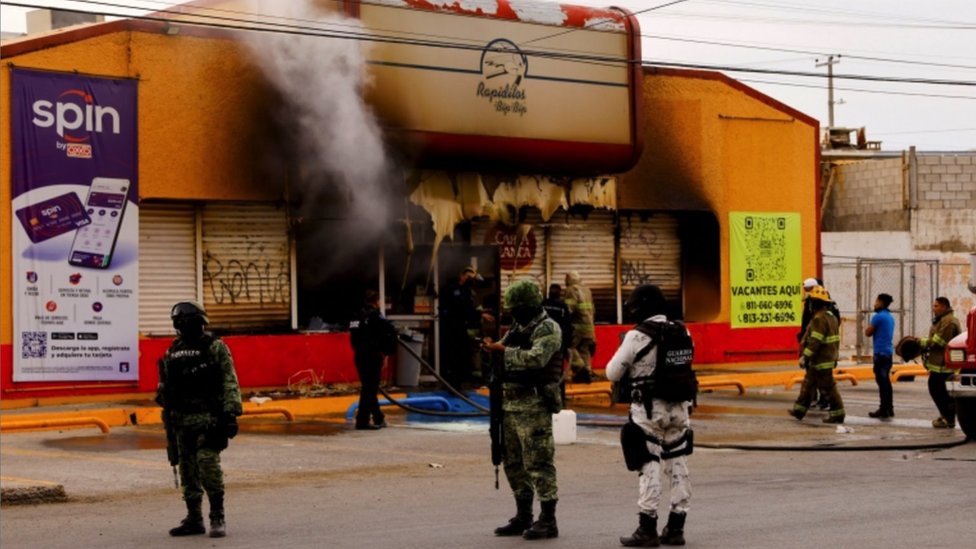
“There have already been events of this type in the past, but what we are seeing is an upsurge in violence against civilians. Last week a child was killed, we saw businesses burned with people inside they burned trucks… it is undeniable that this violence is getting worse,” he tells BBC Mundo Xavier Olive, security specialist.
What is really unprecedented about the latest attacks, analysts agree, is that so many violent episodes were recorded in such a short time and sowing terror in different states of the country.
“It draws attention timing of events. I’m not saying they’re related, but it is a cstriking organizational capacity of these groups of criminals”, adds the researcher of the National Autonomous University of Mexico.
The objective or motives of the criminal groups to carry out these attacks on civilians is not one.
As stated on Monday by the Undersecretary of Security, Ricardo Mejia, in the events of last week there was “a criminal propaganda purpose to seek generate social psychosis”.
“Criminal organizations want to feel strong and generate situations of violence where, by way of advertising, they may be sending their messages that are still strong,” agreed the Secretary of Defense, Luis Cresencio Sandoval.
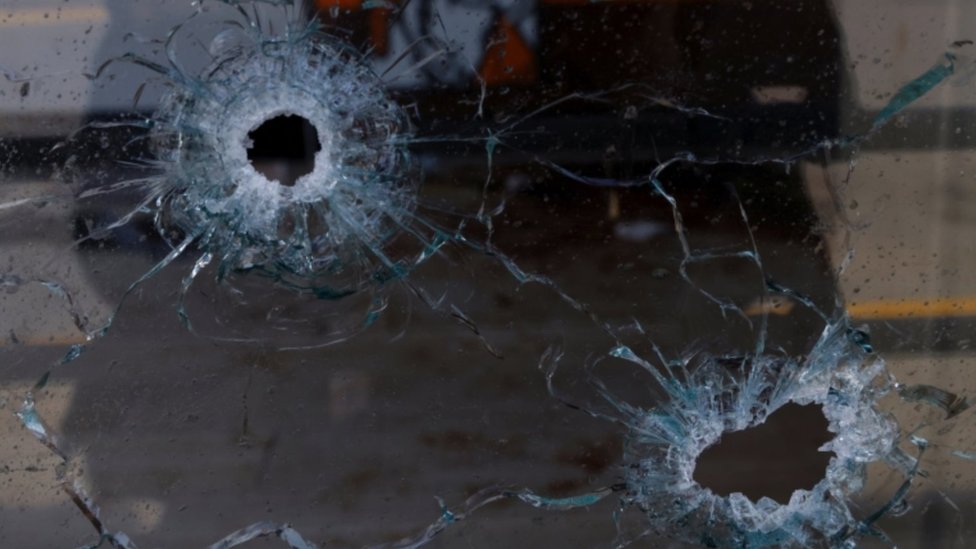
The cartels know that the impact of an attack against the population is much greater and they take advantage of it to create a real scenario of chaos and lack of control on occasions when, like last week, they feel threatened by an operation against their leaders.
The same thing happened in 2019 during the well-known “Culiacanazo” for the capture of the son of the leader of the Sinaloa cartel, Joaquín “el Chapo” Guzmán, and his subsequent release due to the extreme levels of violence unleashed in the municipality.
They want to launch a triple message: to the authorities of ‘you don’t touch me, and if you do I will react strongly enough to inhibit your action’; other rival organizations and the population to tell them that ‘here we are the only power that controls the city,'” explains Guillermo Valdes Castellanos, former director of the disappeared Center for Investigation and National Security of Mexico (CISEN) that gave rise to the current National Intelligence Center.
The practice of sowing this chaos in territories dominated by rival groups is known in drug slang as “warming up the plaza.” The objective is to attract the attention of the authorities so that they send more soldiers and thus hinder the criminal activities of their enemies.
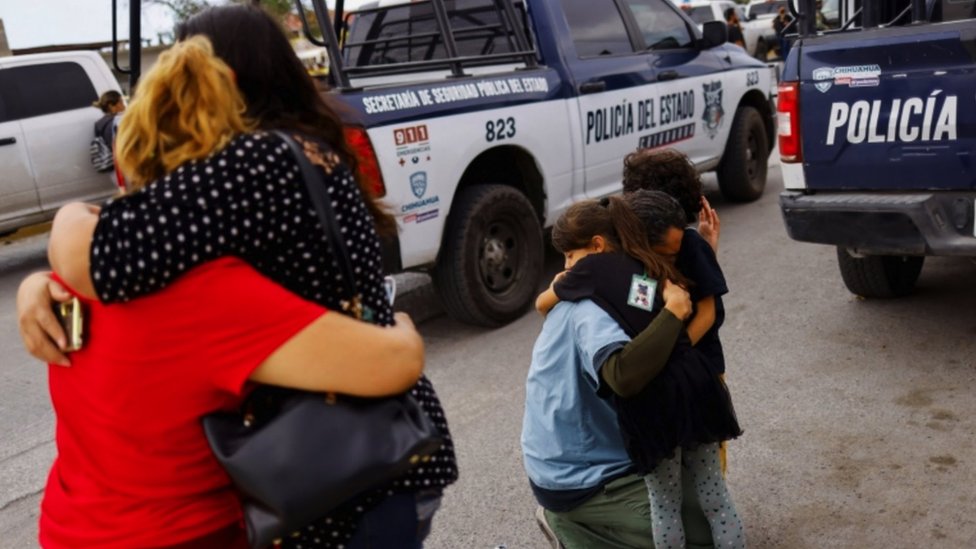
“The justification of organized crime towards society for this type of act is to say that if you leave them alone, they do nothing. But if the government reacts against them, then we all suffer,” says Albert Islands, security expert.
“It’s their way of playing the victims and saying that if the State lets them work, everything will be calm. When we really see that the population of places where there is organized crime suffers extortion on a daily basis, they pay flats, they traffic in women… ‘Normal’ for them is holding citizens hostage,” add.
Results of “hugs, not bullets”
According to the Mexican government, if the criminal groups wanted to be strong with these latest attacks, it was due to a supposed “weakening” accomplished for the security strategy that López Obrador popularized under the controversial slogan ‘hugs, not bullets’.
This strategy, with which the current president intends to distance himself from the well-known “war on drugs” of former President Felipe Calderón, prioritizes improving the living conditions of the population over punitive action as a way to prevent them from joining the ranks of the drug dealer
“That takes work. It’s not just having enough elements, severe laws, heavy-handed threats, ‘my hand won’t shake,’ no. It’s, even if they don’t like it, hugs, not bullets. It is more intelligence than force,” the president insisted on Wednesday.
To demonstrate his results, López Obrador again offered this week a comparison of homicides in Mexico during the first and last year of previous governments, which increased by more than 192% and 59% in the mandates of Felipe Calderón and Enrique Peña Nieto, respectively.
AMLO boasted that the figure so far this year is more than 10% lower than what was recorded during the same period of his first year in office in 2019. “But we calculate that we can reach 15% by the end of the year of decline,” he predicted.
However, what the president did not emphasize is that last June the total number of violent deaths recorded during the entire Calderón government was exceeded in his term. And considering that he will not leave power until the end of 2024, AMLO’s is shaping up to be the most violent six-year term in the country’s history.
In fact, radically opposed to the interpretation of the government, opposition and businessmen assured that the latest violent acts demonstrate precisely the failure of government policy, and not the opposite.
“I don’t see that the main cartels have been weakened in these three and a half years of government. The government’s discourse minimizes a very complex reality by wanting to make believe that its strategy is correct when we are seeing a very clear operational capacity of criminal organizations,” asks Valdés Castellanos.
Change of government strategy?
Some analysts also expressed their doubts as to whether these events could be the reaction of organized crime to a hypothetical change in the Executive’s security strategy.
This supposed hardening -not officially declared- could be a reaction to recent announcements such as the plan for the National Guard -created in 2019 under a civilian command to guarantee citizen security- to become part of the Defense Secretariat, or the detention drug trafficker Rafael Caro Quintero, one of the most wanted men in the United States.
But the government itself denied this possibility of a shift in its policies. “The federal strategy is giving results and when something is giving results, there is no reason to change it,” said the Secretary of the Interior, Adam Augusto Lopez.
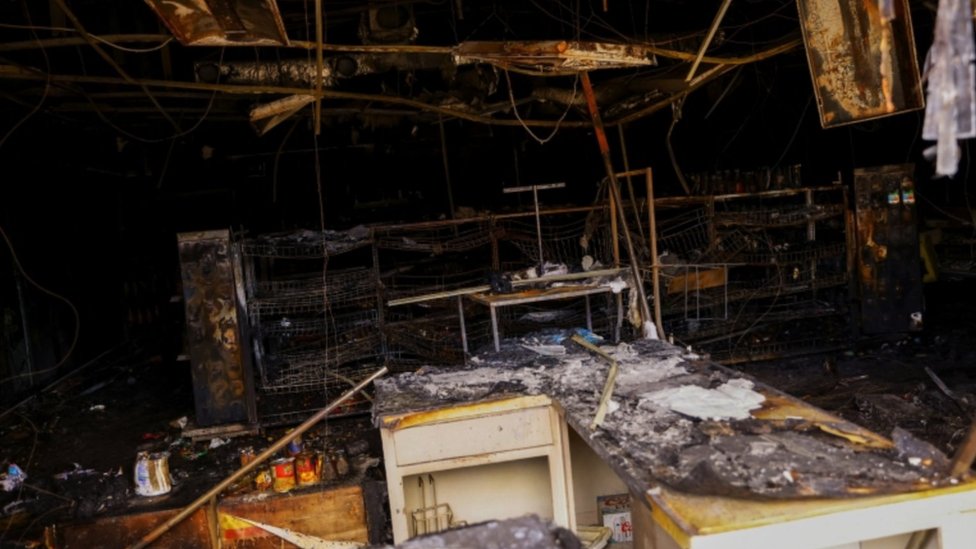
The Islas analyst agrees. “The response from organized crime last week was harsh because there was an operation against a specific target, as has happened on other occasions. That is not a change in public policy trend.”
In his opinion, the “non-existence of real public policies” to dismantle organized crime is visible in the limited capacity of local police to react to events such as those of last week.
Or like when the mayor of Tijuana herself called on organized crime last week “to collect the bills from those who did not pay what they owe, not to the families.” “It is a call of desperation, when she had to be taking the actions so that this does not happen,” says Islas.
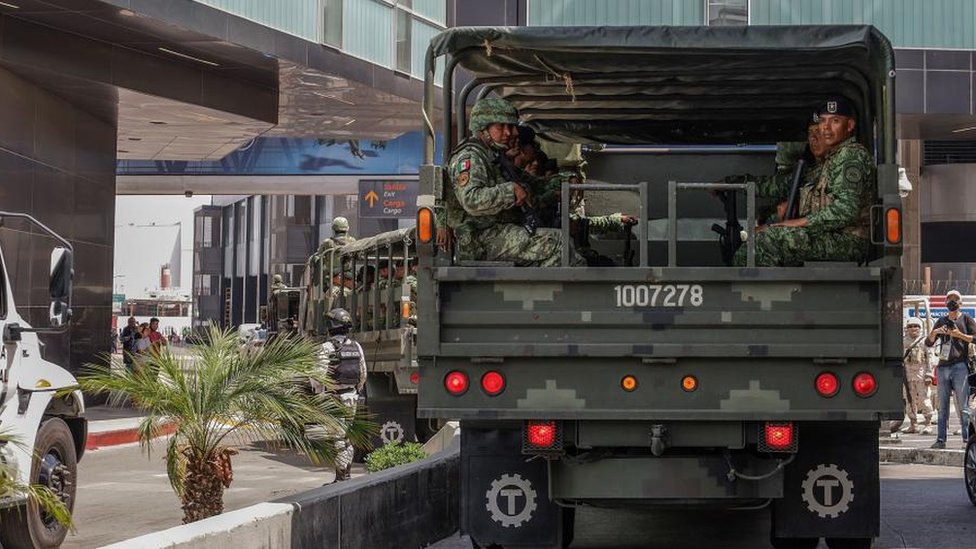
“The logic of these organizations that want more territory is to terrorize the population and kill innocents if necessary. What is not logical is that the government does not know how to react and avoid it,” questions Valdés Castellano.
For the expert, the chaos seen in Mexico last week with the civilian population as victims “is a symptom of the permissiveness generated by the government’s security policy and shows that criminal organizations they feel comfortable and under pressure in the face of a null or very late reaction from the authorities”.
“Hopefully it isn’t like that, but the conditions are right for them to continue subjugating the civilian population,” he concludes.
Remember that you can receive notifications from BBC News World. Download the new version of our app and activate it so you don’t miss out on our best content.
